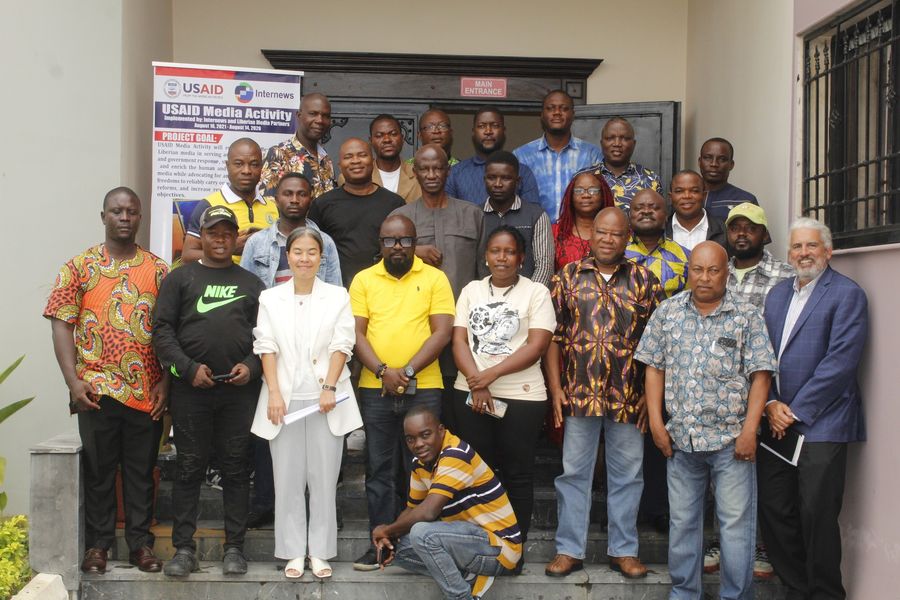With political campaign activities to the 2013 Liberian presidential and legislative elections to kick off in less than a week, USAID media activities implemented by Internews, and its local partners have begun training of radio talk show hosts also known as moderators to help conduct candidates’ debates across the country.
The training brought together 18 debate moderators from radio stations in based Montserrado, Grand Cape Mount, Gbarpolu, Bomi, and Bong Counties.
According to Internews, the training was designed to sharpen the skills of participants in effective candidates’ debate moderation, in preparing for the kickoff of a partnership with Civil Society Organizations (CSOs) and a network of radio station to conduct more than ninety political debates for candidates, across the country. Some of the partners include the Press Union of Liberia (PUL), Female Journalists Association of Liberia (FEJAL), Election Coordinating Committee (ECC), etc.
“In the next two months (August and September), Media Activity will work with media CSOs and a network of radio stations across the country to organize 73 lower house debates, 20 senatorial debates, and possibly one presidential debate,” said Internews.
According to Internews, electoral debates play a crucial role in promoting informed decision-making, fostering transparency, and engaging citizens in the democratic process.
Some topics covered during the training include understanding Liberia’s current electoral context, characteristics of an effective debate moderator, familiarization with election debate forums, research and debate preparation, crafting thoughtful questions for an election debate and establishing ground rules and controlling the debate.
Other topics include, ensuring gender sensitivity in an election debate, media and security SOP during elections, and among others.
The reporters were trained to select a suitable place for the debate in connection with the participants and ensure the audience was at least 150. The issue of neutrality was highly discussed, and the debate moderators were told to show neutrality and avoid conflicts of interest.
The moderators were given promises tracking forms to track all election promises that will be made by the politicians during debate, and, after the first agriculture break following the election, a follow up will be made for those who will win so as to hold them accountable for promises made during the election period.
“After the election, the winning candidates will be invited to a community forum during the first legislative break to account for the promises made during the election debate,” one of the trainers told the reporters.
At the close of the training, each of the reporters or participants was made to sign a conflict-of-interest form, distancing themselves from any political activities or providing any financial support or aid to any candidate or political party.
However, the participants have appreciated Internews for the training, promising to put the skills acquired to good use for the betterment of the country.
Janet Wonder, a moderator of Smile FM (Zwedru), on behalf of her colleagues, lauded the organizers for the new skill sets acquired, and promised that they would be put to good use.
“We want the message from the debate to resonate so as to strengthen our democracy,” said Jefferson Massah, Senior Media Adviser, Internews/USAID.

